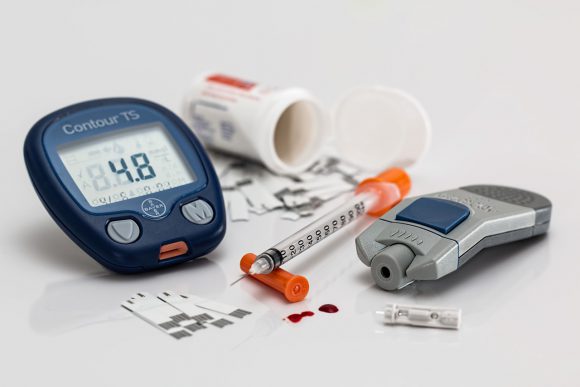
3 Reasons why you should drink coffee
Most everyone has a cup of coffee every morning. At least during the work week. But, should you be drinking coffee? Depending on who you talk too, coffee is either good or bad. But, these terms, like everything else, are subjective. We have to look at how much, what frequency and under what conditions. Today we’ll look at 3 reasons why coffee could be good for you. Next time we’ll look at the flipside.
Effects on the Brain
![]() According to several published studies, caffeine can reduce the risk of late life dementia. A 2009 research paper presented results of a longitudinal study of 1409 individuals, to determine the effects of drinking coffee (1). After a follow up with participants (65 to 79) of ~21 yrs, it was found that coffee drinkers at midlife, had lower risk of dementia and Alzheimer’s disease (AD) later in life, compared to others who consumed very little coffee. People who drank 3-5 cups decreased their risks by ~65%. This was adjusted for both genetic and lifestyle predispositions for dementia/AD.
According to several published studies, caffeine can reduce the risk of late life dementia. A 2009 research paper presented results of a longitudinal study of 1409 individuals, to determine the effects of drinking coffee (1). After a follow up with participants (65 to 79) of ~21 yrs, it was found that coffee drinkers at midlife, had lower risk of dementia and Alzheimer’s disease (AD) later in life, compared to others who consumed very little coffee. People who drank 3-5 cups decreased their risks by ~65%. This was adjusted for both genetic and lifestyle predispositions for dementia/AD.
Another 2002 study examined 54 patients with probable AD along with 54 controls (cognitively normal) who were matched for age and sex (2). It was found that in the preceding 20 years before diagnosis of AD, the controls consumed ~199 g of caffeine vs ~74 g for the AD patients. When screened for confounding variables, caffeine intake was associated with a significantly lower risk for AD. The antioxidants and chlorogenic acid lactones (roasted coffee) in coffee is believed to guard against oxidative stress and thus has a neuroprotective effect (3).
A 2010 study examined the effects of caffeine and glucose on the efficiency of brain activity of 40 healthy subjects. A double-blind randomized design was used. This simply means that neither participants nor the researcher who administered the drinks, knew which ones contained, caffeine, glucose, the two combined, or a water placebo (4). The results showed that, subjects who increased their coffee consumption by more than 1 cup/day over a 4 year period had a lower risk of type 2 diabetes compared with those who made no changes. Participants who decreased their coffee intake by more than 1 cup/day had a higher risk for type 2 diabetes.
Helps with diabetes
In 2005, review of 9 different studies consisting of 93 473 participants and 8394 cases of type 2 diabetes was conducted. The review study examined the effects of coffee consumption on type 2 diabetes. The research supported the hypothesis, that habitual coffee consumption is associated with a low risk of type 2 diabetes (5).
A 2004 study on the effects of caffeine on patients with type 2 diabetes, showed that after a meal, glucose and insulin responses were exaggerated. The implications of which are increased risk of complications in patients with type 2 diabetes. This was a small study of 14 participants with type 2 diabetes. It should also be noted that, caffeine and not coffee was studied. Coffee may have other chemicals that could offset the effects of the caffeine by itself (6).
A much larger 2014, prospective study of 48,464 women in the Nurses’ Health Study (NHS; 1986–2006), 47,510 women in NHS II (1991–2007) and 27,759 men in the Health Professionals Follow-up Study (HPFS; 1986–2006) was conducted. Follow ups were done every 4 years (7).
Participants who increased their coffee consumption (caffeinated or decaffeinated) by more than 1 cup/day over a 4 year period had a lower risk of type 2 diabetes compared with those who made no changes in consumption. Participants who decreased their coffee intake by more than 1 cup/day higher risk for type 2 diabetes.
Similar effects were noted in other smaller studies. The interesting thing to note, is that, in the caffeine study, there were increased risks of complications in those who already have diabetes. Is this contradictory? Well when you consider the 2014 study, the lower risks were found in both caffeinated an decaffeinated coffee. It must mean that other chemicals in the coffee are responsible for the lowered risks and not the caffeine itself.
Heart healthy
In a 2011 study, the effects of coffee, green tea, black tea and oolong tea consumption and risk of mortality from cardiovascular disease (CD). A total of 76,979 individuals, (40–79 years) free of  stroke, coronary heart disease (CHD) and cancer at entry were prospectively followed. Overall it was found that consumption of coffee, green tea and oolong tea and total caffeine intake was associated with a reduced risk of mortality from CVD (7).
stroke, coronary heart disease (CHD) and cancer at entry were prospectively followed. Overall it was found that consumption of coffee, green tea and oolong tea and total caffeine intake was associated with a reduced risk of mortality from CVD (7).
A cross-sectional study published in 2015, of 25,138 men and women (mean age 41.3 years) without clinically evident cardiovascular disease found an inverse relationship between coffee consumption and CVD. More specifically coronary artery calcium. The relationship was similar in subgroups defined by age, sex, smoking status, alcohol consumption, status of obesity, diabetes, hypertension, and hypercholesterolaemia (8).
Summary
Almost all of the studies presented were essentially observational studies. Most data being collected through questionnaires and self reporting. Whilst studies were large in some cases, and followed people over a period of time, self reporting does introduce elements of uncertainty. In many cases, the reasons for the mechanism by which the coffee or caffeine provided benefits was not known.
It should be noted that in the different studies the overall trend was still the same. Obviously more rigorous studies need to be conducted, and more focused on finding out the factors that allow for the benefits to occur. As stated earlier, next time we’ll examine the cons of drinking coffee. ‘Till then, I’m sticking to my 1 cup a day habit (Grande Americano).

I love coffee, and probably considered a heavy drinker (of coffee that is) drinking 4x 16oz throughout the day and evening. I do get withdrawal headaches if I don’t drink at least 16oz but I can drink late at night and still sleep well. So .. I do tend to like the more positive reads on coffee 🙂 Thanks for your post
Lol. There are benefits, with and without the caffeine. I did also do look into the negative aspect of it, in another article….https://losefateatright.com/th…